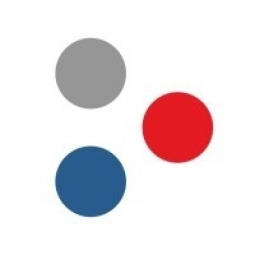Download PDF
GPS INSIGHT SUCCESS STORY: MedCare Improves Delivery Success Rate to 99% with GPS Insight
Technology Category
- Sensors - GPS
Applicable Industries
- Healthcare & Hospitals
Applicable Functions
- Logistics & Transportation
Use Cases
- Fleet Management
- Real-Time Location System (RTLS)
Services
- System Integration
The Challenge
MedCare Equipment Company, a medical equipment delivery company, was facing challenges in finding the most efficient way of delivering items from point A to point B as quickly as possible. The company's mission to improve the health and well-being of every life they touch added a unique challenge as their customers' lives often depended on the items they delivered. The company's IT department understood the value of GPS vehicle tracking and how it could help them complete deliveries faster, but their current provider did not offer the reliable data needed to improve their business. The GPS data they received was strictly in real-time and did not provide them with any historical data, making reporting impossible. As the company grew to service more areas, an increased level of logistical insight was required to meet their standards of excellence.
About The Customer
MedCare Equipment Company is an award-winning Home Medical Equipment (HME) and Medical Supply Company that has been serving Western Pennsylvania, Eastern Ohio, Northern West Virginia, and Southwest New York for over 20 years. The company's mission is to improve the health and well-being of every life they touch. MedCare employs over 80 drivers across 14 service branches to provide 24/7 delivery. From walkers to wheelchairs, beds, and oxygen tanks, MedCare specializes in delivering these pieces of essential health care equipment to patients and health care facilities alike. One of the standards that MedCare sets for itself is to deliver any life-sustaining equipment within 4 hours of a patient’s discharge from the hospital.
The Solution
MedCare switched from their original GPS tracking product to GPS Insight. Prior to the switch, MedCare drivers were given the task of creating their own routes for their scheduled deliveries. After switching to GPS Insight, the time for route creation dropped to 15 minutes on average. The drivers were given access to GPS Insight routing capabilities and now have the ability to import all of their delivery locations to generate an automated, optimized route. This capability is enabled by the unlimited user count available in the GPS Insight Pro solution as well as the extensive dashboard customization options for each of those users. MedCare was able to recover over 11,000 working hours in lost productivity within their first year. Driver behavior soon became an area of focus once MedCare realized the extensive and advanced reporting capabilities they now had with GPS Insight.
Operational Impact
Quantitative Benefit
Related Case Studies.

Case Study
Hospital Inventory Management
The hospital supply chain team is responsible for ensuring that the right medical supplies are readily available to clinicians when and where needed, and to do so in the most efficient manner possible. However, many of the systems and processes in use at the cancer center for supply chain management were not best suited to support these goals. Barcoding technology, a commonly used method for inventory management of medical supplies, is labor intensive, time consuming, does not provide real-time visibility into inventory levels and can be prone to error. Consequently, the lack of accurate and real-time visibility into inventory levels across multiple supply rooms in multiple hospital facilities creates additional inefficiency in the system causing over-ordering, hoarding, and wasted supplies. Other sources of waste and cost were also identified as candidates for improvement. Existing systems and processes did not provide adequate security for high-cost inventory within the hospital, which was another driver of cost. A lack of visibility into expiration dates for supplies resulted in supplies being wasted due to past expiry dates. Storage of supplies was also a key consideration given the location of the cancer center’s facilities in a dense urban setting, where space is always at a premium. In order to address the challenges outlined above, the hospital sought a solution that would provide real-time inventory information with high levels of accuracy, reduce the level of manual effort required and enable data driven decision making to ensure that the right supplies were readily available to clinicians in the right location at the right time.

Case Study
Gas Pipeline Monitoring System for Hospitals
This system integrator focuses on providing centralized gas pipeline monitoring systems for hospitals. The service they provide makes it possible for hospitals to reduce both maintenance and labor costs. Since hospitals may not have an existing network suitable for this type of system, GPRS communication provides an easy and ready-to-use solution for remote, distributed monitoring systems System Requirements - GPRS communication - Seamless connection with SCADA software - Simple, front-end control capability - Expandable I/O channels - Combine AI, DI, and DO channels

Case Study
Driving Digital Transformations for Vitro Diagnostic Medical Devices
Diagnostic devices play a vital role in helping to improve healthcare delivery. In fact, an estimated 60 percent of the world’s medical decisions are made with support from in vitrodiagnostics (IVD) solutions, such as those provided by Roche Diagnostics, an industry leader. As the demand for medical diagnostic services grows rapidly in hospitals and clinics across China, so does the market for IVD solutions. In addition, the typically high cost of these diagnostic devices means that comprehensive post-sales services are needed. Wanteed to improve three portions of thr IVD:1. Remotely monitor and manage IVD devices as fixed assets.2. Optimizing device availability with predictive maintenance.3. Recommending the best IVD solution for a customer’s needs.

Case Study
HaemoCloud Global Blood Management System
1) Deliver a connected digital product system to protect and increase the differentiated value of Haemonetics blood and plasma solutions. 2) Improve patient outcomes by increasing the efficiency of blood supply flows. 3) Navigate and satisfy a complex web of global regulatory compliance requirements. 4) Reduce costly and labor-intensive maintenance procedures.

Case Study
Harnessing real-time data to give a holistic picture of patient health
Every day, vast quantities of data are collected about patients as they pass through health service organizations—from operational data such as treatment history and medications to physiological data captured by medical devices. The insights hidden within this treasure trove of data can be used to support more personalized treatments, more accurate diagnosis and more advanced preparative care. But since the information is generated faster than most organizations can consume it, unlocking the power of this big data can be a struggle. This type of predictive approach not only improves patient care—it also helps to reduce costs, because in the healthcare industry, prevention is almost always more cost-effective than treatment. However, collecting, analyzing and presenting these data-streams in a way that clinicians can easily understand can pose a significant technical challenge.






